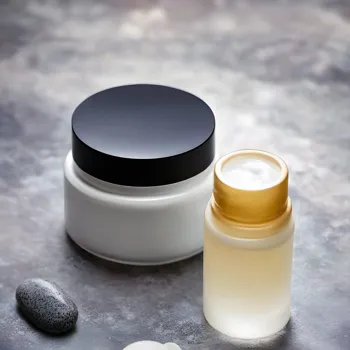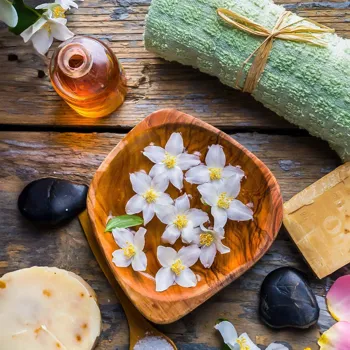Unlock the secrets to flawless skin by understanding your skin type. Tailor your skincare routine with these 5 key factors. Read more to achieve your skin goals
In the diverse landscape of Bharat, understanding
your skin type is the first step towards achieving healthy and glowing skin. Forget blindly following trends or relying on generic advice from influencers. A one-size-fits-all approach simply doesn't work when it comes to skincare.

Considering the weather of India is important to know your skin type to better the health. This country faces summers, winter and rainy this makes the skin face different challenges and problems.
Before purchasing beauty products do understand which skin type you have and read the labels if it suits your skin.
Understanding skin type crucial for skincare routine success
Many a times, we all face issues like, acne, dryness, oilyness, eczema etc. All these problems can be tackled as if we know our skin and what do do about them. You must be able to feel your skin and you would know if it is dry and oily.

The key is to choose products and techniques that complement your skin. When you are buying a beauty product, check the labels carefully because it is important to know if the product will work or not. To know which type of skin you have you should know a few factors.
This is important to achieve you goals to getting better skin.
Assess skin type: oily, dry, combination, or normal
The first crucial factor is assessing your skin's oil production. Begin by washing your face with a gentle cleanser that won't strip your natural oils. After cleansing, pat your face dry and wait for about an hour without applying any products. Now, observe your skin in a well-lit area.

If your skin appears shiny all over, especially on your forehead, nose, and chin (the T-zone), you likely have oily skin. If you notice tightness, flakiness, or a dull appearance, your skin is likely dry.
Combination skin exhibits both oily and dry areas, typically with an oily T-zone and dry cheeks. Normal skin feels balanced, neither too oily nor too dry, with minimal visible pores.
Sensitive skin needs paraben-free, organic products. Consult a doctor during treatments
Next, consider your skin's sensitivity. Does your skin react easily to new products, fragrances, or even certain fabrics? Do you experience redness, itching, or burning sensations after using specific products or being exposed to certain environmental factors?

If you answered yes to these questions, your skin is likely sensitive. People with sensitive skin need to be extra careful while picking products. You must also ensure that the products that you have selected must be paraben free. Always select a product that is organic and natural.
If you are undergoing any treatment you must consult a your doctor before introducing new beauty product into your routine.
Understanding skin hydration levels is crucial; dehydrated skin lacks water, dry skin lacks oils
Another key factor is understanding your skin's hydration levels. Dehydrated skin lacks water, while dry skin lacks natural oils. Dehydration can affect all skin types, even oily skin. To assess your skin's hydration, gently pinch a small area of your cheek.

If it wrinkles easily or takes a while to bounce back, your skin is likely dehydrated. Look for products containing hyaluronic acid to replenish moisture. This hydrates the skin from within as hyaluronic acid is known for its water retention.
Also look for ingredients like aloe vera and rose water as they help to hydrate the skin.
Manage pore size based on skin type with proper care
Pay close attention to your pore size and visibility. Large, visible pores often indicate oily skin, as the sebaceous glands are more active and produce more oil, leading to enlarged pores. Smaller, less visible pores are typically associated with dry or normal skin.

You can minimise the visibility of the pores by keeping your skin clean. Scrubbing to remove excess oil and make up will help shrink the pores. You must pick the right product that is suitable for you. It is the best idea to pick ingredients that is natural like the ones from your kitchen cupboard.
Understand skin reactions to environment for proper care; sunscreen, hydration, moisturizing essential
Finally, consider your skin's response to environmental factors like sunlight, pollution, and weather changes. Does your skin burn easily in the sun? Does it become dry and irritated in cold weather? Does it react to air pollution with breakouts or inflammation?
Understanding how your skin reacts to these factors will help you tailor your routine to protect and nourish your skin appropriately. One must apply sunscreen before stepping out of the house. In summers hydrate yourself adequately and in winters moisturise well.
These basic steps wil help your skin against any weather changes. This also includes exposure to pollution and dirt.
Assess key factors for skin type, consult dermatologist, take care of skin
Once you have assessed these five key factors – oil production, sensitivity, hydration levels, pore size, and environmental response – you can begin to identify your skin type and select products and ingredients that are specifically formulated for your needs.
Remember to patch-test new products before applying them to your entire face, and consult a dermatologist if you have any concerns or persistent skin issues. You can take advice from dermatologist and seek professional help to better the skin problems.
You must take care of your skin as it is one of the most important organ in your body.
AI Generated Content. Glance/InMobi shall have no liability for the content












